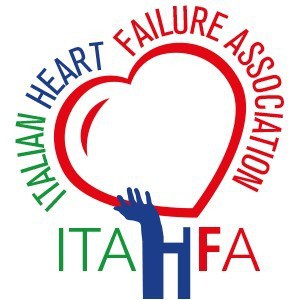Video
ESC 23: HEART-FID: Ferric Carboxymaltose in HF with Iron Deficiency
Published: 26 Aug 2023
-
Views:
 1590
1590
-
Likes:
 0
0
Average (ratings)
No ratings
ESC 2023 — Dr Robert Mentz (Duke University Medical Center, US) joins us to provide a succinct summary of the findings and key take-home messages from the HEART-FID study (NCT03037931).
HEART-FID (American Regent, Inc.) aimed to determine the safety and efficacy of iron therapy using intravenous (IV) ferric carboxymaltose (FCM) as compared to a placebo in the treatment of patients with heart failure with a reduced ejection fraction (HFrEF) and iron deficiency. 3065 patients were enrolled in this double-blinded, multicenter trial. After a 28-day screening period, participants were stratified by region and randomized in a 1:1 ratio, to receive either IV FCM, or a placebo for treatment.
Results suggest that FCM was safe in patients, and showed a modest improvement in the endpoint of all-cause mortality (1.7% ARR), heart failure hospitalisations and six-minute walking distance. The trial however did not achieve the pre-specified statistical significance level (P=0.019 with a specified level of 0.01.).
Questions:
- What is the current landscape of FCM in HF treatment?
- What was the patient population and study design?
- What were the key findings?
- What does this study add to the conversation surrounding FCM in recent years?
- What are your take-home messages?
- Where are the knowledge gaps?
Recorded on-site at ESC Congress 2023, Amsterdam.
For more content from ESC Congress 2023 head to the Hot Line & Late-breaking Science Video Collection.
Editors: Mirjam Boros and Jordan Rance
Video Specialists: Dan Brent, Tom Green, Mike Knight, Oliver Miles
" Hi. I'm Dr. Robert Mentz, a heart failure cardiologist at Duke University, and I'll be speaking about the HEARTFID trial just presented here at ESC Congress.
The Current Landscape of FCM in HF Treatment
As we talk about the current landscape of IV-FCM or ferric carboxymaltose in heart failure. what we know is there are class one recommendations to check for iron deficiency in heart failure, and then there's a class one recommendation for FCM or IV iron to improve quality of life and exercise capacity in heart failure. Then the most recent guideline update gives a class two recommendation to potentially improve heart failure hospitalizations in patients. So increasingly there is a recognition of that this medication helps people feel and function better when they have heart failure with iron deficiency, with some potential benefits on clinical outcomes.
Patient Population and Study Design
So the HEARTFID trial was a trial, long outcome trial to look at heart failure events in all-cause mortality in patients with heart failure with reduced ejection fraction and iron deficiency. It was designed in over 3000 patients with heart failure, a double-blind, placebo-controlled, event-driven trial of ferric carboxymaltose versus placebo, looking at a primary endpoint of twelve months all-cause mortality, followed by a heart failure hospitalization in a hierarchy, and then six months six-minute walk distance.
Key Findings
So in HEARTFID, we had a population of 3065 patients. It was approximately a third women, an average age around 69, and 11% self-identified black individuals. In the US, that was 26%. Ultimately, what we found for our primary endpoint was that there was a modest benefit across each of the components with ferric carboxymaltose, a numerical reduction in mortality, reduction in heart failure hospitalizations, and a modest improvement in terms of six-minute walk distance from baseline to six months.
Given that this was designed in discussions with the FDA to be one pivotal trial, we had a higher bar for our prespecified P value of 0.1. So ultimately our P value for superiority was 0.19. So it was technically a neutral study in terms of the primary endpoint. However, the totality of evidence really demonstrating the safety of FCM and suggesting benefits on each of these components of the primary endpoint.
What this Study Adds to the Conversation Surrounding FCM in Recent Years
So HEARTFID nicely adds additional data, the largest of any of the IV iron studies. And importantly, at the same time, we also pooled these data with the AFFIRM AHF and confirmed studies and looked at clinical outcomes across multiple trials in over 4500 patients and did find a significant reduction in a composite of cardiovascular death or total cardiovascular hospitalizations. So, I think putting it all together, we now have a large study showing long-term safety, adding on exceptional background therapy. We can have potential clinical outcome benefits by adding on FCM to medications for heart failure.
Take-Home Messages
To me, some of the key take-home messages are ferric carboxymaltose is safe. We were struck by a potential reduction in death events, a modest improvement in terms of heart failure hospitalizations and six-minute walk distance. So I think this adds another tool to our toolkit for helping manage patients with heart failure. And then it's nice because it's not another medication you take every day, but it's being given either in clinic or in the hospital intravenously in a fairly simple way to help our patients improve their clinical course.
Knowledge Gaps
So much will be explored as we take a deeper dive into the data set. I think better understanding those populations that might benefit the greatest from this. There's some early signals that those with lower TSAT may be one such group. In addition, we want to better understand the repletion needs over time. And in fact, may this just be a one and done where getting these doses early, is that sufficient or do they need additional doses over time? So we'll explore those details and certainly I hope future studies will look at the heart failure with preserved ejection fraction group.”








Comments